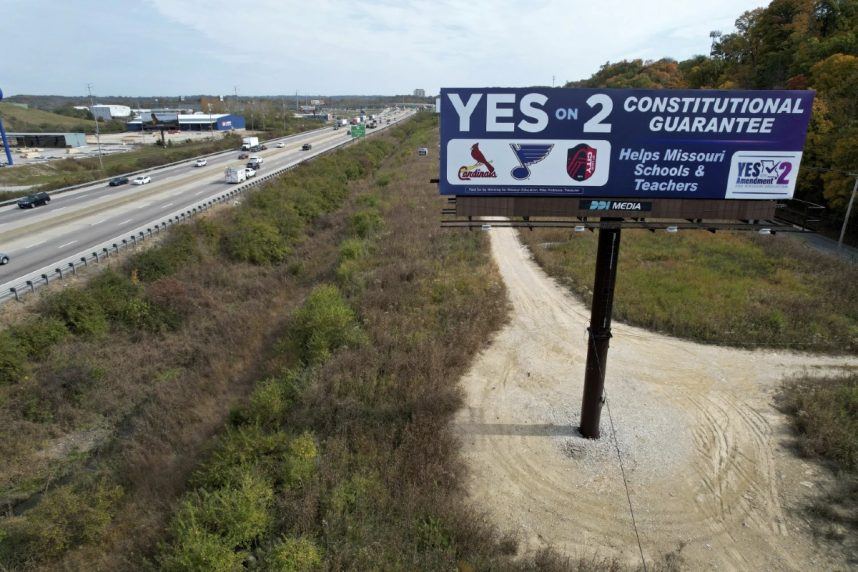Posted on: October 30, 2024, 02:25h.
Last updated on: October 30, 2024, 02:49h.
The campaigns surrounding the Missouri sports betting referendum will have collectively spent more than $54 million by the time Election Day rolls around next Tuesday.

Along with casting a vote for the next president of the United States, Missourians will weigh in on whether they support expanding gambling in the Show-Me State to include betting on professional and college sports.
On Monday, the final batch of state campaign finance records ahead of the November 5 election were made available by the Missouri Ethics Commission.
The filing for Winning for Missouri Education, the pro-sports betting committee bankrolling the Amendment 2 push, reveals that the campaign raised $40.75 million since its inception in January. The committee received $19.2 million from October 1 through October 28. DraftKings and FanDuel were responsible for all $19.2 million.
Winning for Missouri Education singlehandedly set a new record for the most money ever raised for a ballot referendum in the state. The previous mark was $31 million when a campaign encouraging Missourians to back an initiative to protect stem cell research proved successful in 2006. The stem cell research question was Amendment 2 during the 2006 election.
Opposition Spending
The $40.75 million raised by the pro-sports betting campaign isn’t all the money surrounding the 2024 Amendment 2 question. Caesars Entertainment, which operates Harrah’s North Kansas City, Horseshoe St. Louis, and Isle of Capri Boonville, is opposed to Amendment 2 on claims that the state’s proposed sports betting regulations wouldn’t provide much money for education as promised.
Caesars’ reps say the amendment’s allowance for sportsbooks to deduct promotional bets issued to lure in new customers and ongoing free bets to retain them would cut into the state’s public schooling tax benefit. Critics believe Caesars’ true intent in opposing Amendment 2 is because it would welcome noncasino operators and allow sportsbook leaders DraftKings and FanDuel to possibly operate online without being tethered to a casino with a revenue-sharing agreement.
Caesars’ campaign against Amendment 2 — Missourians Against the Deceptive Online Gambling Amendment — has raised nearly $14.2 million. Caesars’ three casinos in Missouri gave $10 million in October.
Sports Betting Specifics
If Amendment 2 passes, Missouri’s 13 casinos will be provided with one retail and online sportsbook opportunity. The state’s professional sports stadiums and arenas would be afforded the same opportunities. Two online sportsbook skins would additionally be authorized.
Online licenses would cost $500K and retail permits $250K every five years. Missouri would collect 10% of the sports betting proceeds regardless of where the action originated.
The referendum language includes a provision that sportsbooks be allowed to deduct up to 25% of the free bets they give to customers from their tax liabilities.
State fiscal officers believe Missouri could reap almost $29 million a year from sports betting. The realized benefit, however, would depend on the amount of free bets the operators provide their customers.
The first $5 million a year received by the state from oddsmakers would go toward the state’s Compulsive Gambling Prevention Fund. The remaining benefit would go to K-12 public schools and higher education.
Missouri is one of only two states that border eight other states. Of those neighbors, all but Oklahoma have some form of legal sports betting. Iowa, Illinois, Kansas, Kentucky, Tennessee, and Kansas have mobile sports betting. Nebraska limits sports betting to in-person at its racetrack casinos.



